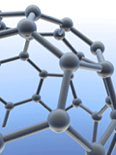
Annual Review of Analytical Chemistry
metrics 2024
Connecting Ideas, Inspiring Innovations in Chemistry
Introduction
Annual Review of Analytical Chemistry, published by Annual Reviews, is a premier journal that serves as a critical resource in the field of analytical chemistry, providing comprehensive and cutting-edge reviews that synthesize recent advancements and pivotal research findings. With an impressive impact factor and ranked Q1 in both Analytical Chemistry and Miscellaneous Medicine, it stands as a leader in disseminating knowledge that spans the intricacies of chemical analysis, enhancing the scientific discourse within the community. Available in both print (ISSN: 1936-1327) and online (E-ISSN: 1936-1335), the journal is accessible to a wide audience, fostering innovation and collaboration among researchers, professionals, and students alike. Its scope includes the converged years from 2008 to 2024, showcasing its commitment to providing relevant and timely insights that impact practice and education in analytical techniques, methodologies, and applications. The Scopus rank of #6 out of 156 in Analytical Chemistry, placing it in the 96th percentile, underscores its significance and the high regard in which it is held. As you explore the journal's offerings, you will find a wealth of knowledge that not only informs but inspires future discoveries in the realm of analytical chemistry.
Metrics 2024
 1.57
1.57 5.90
5.90 8.50
8.50 91
91Metrics History
Rank 2024
Scopus
IF (Web Of Science)
JCI (Web Of Science)
Quartile History
Similar Journals

MICROCHEMICAL JOURNAL
Pioneering Innovations in Analytical Chemistry and SpectroscopyMicrochemical Journal, published by Elsevier, stands as a leading scholarly publication in the fields of Analytical Chemistry and Spectroscopy, boasting impressive rankings of Q1 and Q2 in their respective categories for 2023. With an H-index reflecting its substantial impact and relevance, this journal has been a cornerstone of research dissemination since its inception in 1957, and it continues to play a vital role in advancing the methodological and technological innovations within these disciplines. The journal presents peer-reviewed articles that explore a wide array of topics, making it an essential resource for researchers, professionals, and students keen on the latest advancements in microchemical processes and techniques. Although it does not currently offer open access options, its publication through Elsevier ensures a high standard of academic integrity and wide accessibility through various academic institutions. With a strong Scopus ranking—9th in Chemistry Spectroscopy and 22nd in Analytical Chemistry—Microchemical Journal is an indispensable platform for empirical studies, insightful reviews, and pioneering methodologies in the microchemical domain.
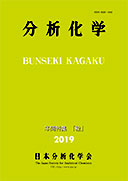
BUNSEKI KAGAKU
Exploring the Depths of Analytical TechniquesBUNSEKI KAGAKU, published by the Japan Society Analytical Chemistry, is a reputable journal dedicated to the field of analytical chemistry. With an ISSN of 0525-1931, this journal has been a crucial outlet for scholarly communication since its inception in 1952, converging its publication years from 1954 to 1957 and from 1959 to 2024. Although it holds a Q4 category ranking in the most recent 2023 quartiles of analytical chemistry and ranks 153/156 in Scopus, it continues to serve as a platform for quality research, fostering advancements in the field. BUNSEKI KAGAKU is based in Tokyo, Japan, and emphasizes the critical importance of analytical techniques in scientific inquiry. With a commitment to professionalism and rigor, the journal provides a vital resource for researchers, students, and professionals seeking to explore innovative methodologies and contribute to the ongoing dialogue in analytical chemistry.
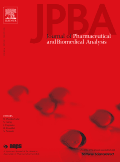
Journal of Pharmaceutical and Biomedical Analysis
Empowering researchers with cutting-edge analytical insights.The Journal of Pharmaceutical and Biomedical Analysis, published by ELSEVIER and available in print and online formats, stands as a pivotal source of knowledge in the realms of Analytical Chemistry, Clinical Biochemistry, Drug Discovery, and Pharmaceutical Science. With an ISSN of 0731-7085 and an e-ISSN of 1873-264X, this journal is dedicated to publishing high-quality research that advances the understanding and development of analytical techniques in pharmaceuticals and biomedicine. The journal has earned a solid reputation, reflected in its Q2 category rankings across five distinct fields for 2023, and boasts impressive Scopus rankings, signaling its robust impact within the academic community. The Journal of Pharmaceutical and Biomedical Analysis serves as an essential resource for researchers, professionals, and students alike, providing actionable insights and fostering innovation that can directly influence future advancements in drug development and biomedical applications.

CHINESE JOURNAL OF ANALYTICAL CHEMISTRY
Catalyzing Progress in Analytical MethodologiesCHINESE JOURNAL OF ANALYTICAL CHEMISTRY, published by SCIENCE PRESS in China, stands as a prominent platform in the field of analytical chemistry since its inception in 1989. With its ISSN 0253-3820 and E-ISSN 1872-2040, the journal maintains a vital role in disseminating empirical research and innovative methodologies, contributing to the advancement of analytical techniques and their applications. The 2023 Scopus ranking positions the journal in the third quartile (Q3) within its category, reflecting a respectable standing among its peers. Researchers, professionals, and students alike engage with a broad range of topics, from instrumental analysis to environmental monitoring, each aiming to foster further scientific inquiry. Although it does not currently offer Open Access, the journal's rich repository of knowledge continues to be an essential resource for those in the analytical chemistry community, with an enduring commitment to scientific excellence and collaboration.

Acta Chemica Iasi
Championing Excellence in Chemical ResearchActa Chemica Iasi is a distinguished open-access journal dedicated to advancing the field of chemistry, published by the esteemed ALEXANDRU IOAN CUZA UNIVERSITY PRESS located in Iasi, Romania. Since its inception, this journal has served as a vital platform for the dissemination of significant research findings, theoretical advancements, and methodological innovations in various chemistry disciplines. As an open-access publication since 2013, it provides unrestricted access to high-quality articles, fostering collaboration and knowledge sharing among researchers, professionals, and students globally. Although specific metrics such as H-Index and Scopus rankings may be forthcoming, the journal's commitment to rigor and excellence ensures that it remains an invaluable resource for those seeking to stay at the forefront of chemical research. With a focus on promoting scientific inquiry and innovation, Acta Chemica Iasi continues to uphold a legacy of scholarly excellence and contribution to the chemical sciences.

Analytical Science and Technology
Advancing analytical excellence in chemistry and technology.Analytical Science and Technology is a prominent journal dedicated to advancing the fields of analytical chemistry and technology, published by the Korean Society for Analytical Science. Based in South Korea, this journal serves as a vital platform for researchers, professionals, and students committed to exploring innovative analytical techniques and methodologies. Although it is classified under Q4 in various subject categories, including Agronomy and Crop Science, Environmental Chemistry, and Pharmacology, the journal aims to provide critical insights and contributions to the scientific community. With ISSN 1225-0163 and E-ISSN 2288-8985, it spans a converged timeline from 2019 to 2024. Despite its current standings in Scopus rankings, the journal is dedicated to improving its visibility and impact through rigorous peer review and high-quality publications, fostering knowledge sharing within its diverse academic fields. Researchers looking for a reliable outlet for their findings are encouraged to consider this journal as it continues to strive for excellence in analytical science.
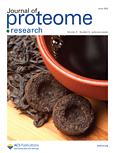
JOURNAL OF PROTEOME RESEARCH
Exploring the Depths of Molecular BiologyJOURNAL OF PROTEOME RESEARCH is a premier publication in the field of proteomics, disseminating cutting-edge research and methodologies that drive advancements in biochemistry and molecular biology. Published by the American Chemical Society, this esteemed journal boasts a robust impact, as evidenced by its Q1 rankings in both Biochemistry and miscellaneous Chemistry categories for 2023. With a reputation bolstered by a solid Scopus ranking—#64 out of 408 in General Chemistry and #80 out of 438 in Biochemistry—the journal serves as an essential resource for researchers, professionals, and students aiming to deepen their understanding of protein functions and interactions in biological systems. Although it does not operate under an open-access model, the JOURNAL OF PROTEOME RESEARCH remains a critical platform for scholarly discourse, committed to publishing high-quality, peer-reviewed articles through 2024 and beyond. Scholars are encouraged to engage with the pioneering studies and reviews that shape the future of proteomics.

TALANTA
Leading Discoveries in Spectroscopy and BiochemistryTALANTA, published by Elsevier, is a premier international journal that serves as a vital platform in the field of analytical chemistry. Since its inception in 1958, TALANTA has provided a comprehensive forum for the dissemination of groundbreaking research and developments in chemical analysis, spanning a wide array of topics including biochemistry and spectroscopy. With an impressive impact factor and ranking in the Q1 quartile within its category for 2023, it is ranked #12 out of 156 journals in Analytical Chemistry by Scopus, placing it among the most influential journals in its field. Researchers, professionals, and students benefit from its stringent peer-review process and high-quality content that drives advancements in analytical methodologies and applications. TALANTA's commitment to fostering innovation and excellence in research makes it an indispensable resource for anyone at the forefront of scientific inquiry.
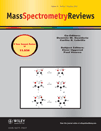
MASS SPECTROMETRY REVIEWS
Empowering Research Through Peer-Reviewed InsightsMASS SPECTROMETRY REVIEWS, published by Wiley, is a premier academic journal dedicated to advancing the field of mass spectrometry and its applications across a multitude of scientific disciplines. With an ISSN of 0277-7037 and an E-ISSN of 1098-2787, the journal has established itself as a vital resource within the realms of Analytical Chemistry, Biochemistry, Genetics, Condensed Matter Physics, and Spectroscopy, achieving Q1 status across these categories in 2023. As a testament to its significant contribution to scholarly research, it boasts impressive Scopus rankings, including a rank of #2 out of 76 in Chemistry - Spectroscopy and #4 out of 156 in Chemistry - Analytical Chemistry, placing it in the 97th percentile and above. Emphasizing high-quality, peer-reviewed research, MASS SPECTROMETRY REVIEWS serves as an essential platform for researchers, professionals, and students aiming to stay abreast of cutting-edge developments and methodologies in mass spectrometry. The journal is committed to fostering a deeper understanding of mass spectrometric techniques while also contributing to interdisciplinary advancements, making it a valuable addition to any academic library. Authors seeking to disseminate their work in a journal with a strong reputation and impact in the scientific community will find MASS SPECTROMETRY REVIEWS an ideal venue.
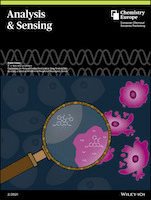
Analysis & Sensing
Exploring Innovative Techniques in ChemistryAnalysis & Sensing is a prominent academic journal published by WILEY-V C H VERLAG GMBH, focusing on the critical fields of Analytical Chemistry, Electrochemistry, Spectroscopy, and Biochemistry. Established within the converged years from 2021 to 2024, the journal aims to advance knowledge in analytical and sensing techniques, providing a platform for high-quality research that reflects current trends and challenges in the scientific community. With a Scopus ranking that highlights its credibility—ranking 101st in Analytical Chemistry and 43rd in Electrochemistry—the journal caters to researchers, professionals, and students striving to enhance their understanding of analytical processes and methodologies. Although not open access, the quality of the articles published ensures a rigorous peer-review system, making it a vital resource for those who wish to remain at the forefront of research innovation in analytical sciences. Additionally, its global reach, indicated by its effective dissemination and relevance, underscores the journal's significance within the realm of chemical research.